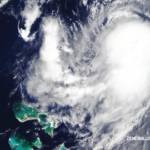“You’ll need to let staff know when to report to work, where to report, and what or whether to expect payroll,” says Bill Stewart, MHA, director of operations for Northwest Diagnostic Clinic in Houston, Texas. “Your patients will want to know if they have an appointment, how they can get their prescriptions refilled, and what to do about their infusions.”
In the event of a regional disaster, you’ll need an integrated strategy that might include a combination of landlines, voice over Internet protocol (VoIP) access, remote toll-free numbers, and walkie-talkies, Dahl points out. Ensure that physicians and key staff members have car chargers for their cell phones in case power lines go down, and consider adding a satellite phone to your emergency equipment in case cell towers are down.
Consider Tools and Equipment
Next, examine the potential impact of a disaster on your equipment and inventory. For insurance purposes, maintain an updated record of medical and office equipment. Keep a running inventory of supplies, including refrigerated drugs that may represent an investment of hundreds of thousands of dollars. Following a disaster, you may need to discard many supplies because of contamination risk.
“Rheumatology practices with infusion suites need to pay special attention to their refrigeration,” Stewart says. “Due to the cost of these drugs, investing in external temperature probes is money well spent.” An IT vendor can integrate these into the group’s electronic network and even generate an email to someone in the practice when the temperature rises or falls beyond a certain threshold, he adds.
If your practice is housed in a dedicated building, consider purchasing a propane generator for emergency power, suggests Kenneth T. Hertz, a principal consultant in the MGMA Health Care Consulting Group who is based in Alexandria, La. If you’re located in a flood zone, install the generator on the roof of your building.
Consider developing a reciprocal arrangement with a rheumatology practice on the other side of town or in a neighboring community, Dahl adds. In the event one practice is damaged or destroyed, those rheumatologists can temporarily use the other practice as a patient care center, treating their patients after hours and on weekends until their office is repaired or reestablished. “You don’t know which side of town might be affected by a disaster, so both groups must be open to the idea,” Dahl says.
Also anticipate the impact of a disaster on your support services. If your bank floods, how will you manage accounts payable? How will you process your accounts receivable and daily deposits? What’s your backup plan if you lose access to your lockbox? If mail service is disrupted, how will patient payments be routed to your practice? If you change locations, even temporarily, how will financial institutions and vendors find your office? Your disaster plan should address these issues.


